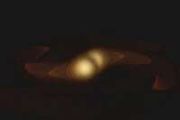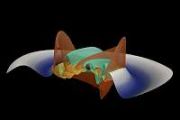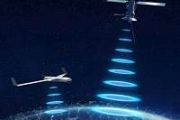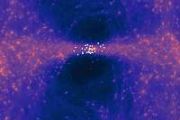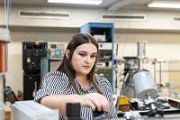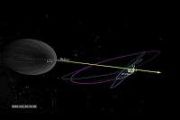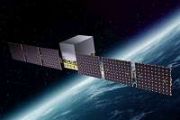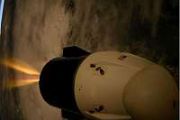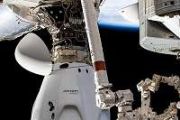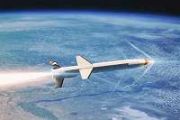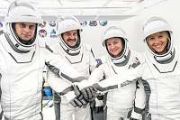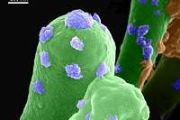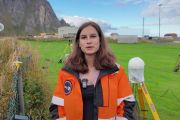
Copernical Team
ULA Vulcan cuts through night skies on landmark national security mission
This request seems a bit unusual, so we need to confirm that you're human. Please press and hold the button until it turns completely green. Thank you for your cooperation!
Press and hold the button
If you believe this is an error, please contact our support team.
185.132.36.159 : fd8c62d1-95d3-421e-a89b-5f1cae38
European satellite to step up monitoring of extreme weather
This request seems a bit unusual, so we need to confirm that you're human. Please press and hold the button until it turns completely green. Thank you for your cooperation!
Press and hold the button
If you believe this is an error, please contact our support team.
185.132.36.159 : 3df99fe2-04cf-4645-a445-abd3ec96
Sunlight-powered floating structures offer a new window into Earth's upper atmosphere
This request seems a bit unusual, so we need to confirm that you're human. Please press and hold the button until it turns completely green. Thank you for your cooperation!
Press and hold the button
If you believe this is an error, please contact our support team.
185.132.36.159 : 247d0ea9-5094-4264-90a8-f318f48d
No Earth-like atmosphere on TRAPPIST-1 d

The exoplanet TRAPPIST-1 d intrigues astronomers looking for possibly habitable worlds beyond our solar system because it is similar in size to Earth, rocky, and resides in an area around its star where liquid water on its surface is theoretically possible. But according to a new study using data from the NASA/ESA/CSA James Webb Space Telescope, it does not have an Earth-like atmosphere.
Tracking the climate-driven shift in Antarctic plankton from space

Combining 25 years of space-based data with ocean sampling, scientists have uncovered a change in the microscopic organisms that underpin the Southern Ocean’s food chain and carbon storage.
NASA Hubble captures sharpest view yet of interstellar comet 3I/ATLAS
 A team of astronomers has used NASA's Hubble Space Telescope to obtain the clearest image yet of interstellar comet 3I/ATLAS, enabling the most precise size estimates so far. The icy nucleus may measure up to 3.5 miles (5.6 kilometers) in diameter, but could be as small as 1,000 feet (320 meters). Even Hubble cannot directly see the nucleus, but its observations provide tighter constraints than
A team of astronomers has used NASA's Hubble Space Telescope to obtain the clearest image yet of interstellar comet 3I/ATLAS, enabling the most precise size estimates so far. The icy nucleus may measure up to 3.5 miles (5.6 kilometers) in diameter, but could be as small as 1,000 feet (320 meters). Even Hubble cannot directly see the nucleus, but its observations provide tighter constraints than Baby star blast warps its own disk in rare cosmic feedback loop
 Astronomers in Japan have identified a rare feedback loop in which a young star's explosive outflow has ricocheted back, striking and warping the very disk of gas and dust from which the star formed. The unexpected discovery may force scientists to rethink the conditions under which stars and planetary systems develop.
Stars form when molecular clouds collapse under gravity, spinning into
Astronomers in Japan have identified a rare feedback loop in which a young star's explosive outflow has ricocheted back, striking and warping the very disk of gas and dust from which the star formed. The unexpected discovery may force scientists to rethink the conditions under which stars and planetary systems develop.
Stars form when molecular clouds collapse under gravity, spinning into Paperclip probe could journey to nearby black hole within a century
 It may sound like pure science fiction - a spacecraft no heavier than a paperclip racing toward a black hole at near-light speed - but astrophysicist Cosimo Bambi of Fudan University believes it could be achievable within decades.
Writing in the journal iScience, Bambi presents a conceptual plan for sending a gram-scale nanocraft to a nearby black hole to probe the fabric of space-time and
It may sound like pure science fiction - a spacecraft no heavier than a paperclip racing toward a black hole at near-light speed - but astrophysicist Cosimo Bambi of Fudan University believes it could be achievable within decades.
Writing in the journal iScience, Bambi presents a conceptual plan for sending a gram-scale nanocraft to a nearby black hole to probe the fabric of space-time and Hints emerge of giant planet orbiting Alpha Centauri A
 Astronomers using the NASA ESA CSA James Webb Space Telescope have gathered strong evidence pointing to a giant planet circling Alpha Centauri A, one of the Sun-like stars in the closest stellar system to Earth. Located just 4 light-years away, Alpha Centauri comprises the binary pair Alpha Centauri A and B along with the red dwarf Proxima Centauri, which already hosts three confirmed planets.
Astronomers using the NASA ESA CSA James Webb Space Telescope have gathered strong evidence pointing to a giant planet circling Alpha Centauri A, one of the Sun-like stars in the closest stellar system to Earth. Located just 4 light-years away, Alpha Centauri comprises the binary pair Alpha Centauri A and B along with the red dwarf Proxima Centauri, which already hosts three confirmed planets. Common Mistakes in Video Transcription: How to Avoid Them
 Video transcription is a vital process that allows you to a href="https://any2text.com/video-to-text">convert video to text /a>, making it more accessible and usable for a wide audience. However, it's not always as straightforward as it seems. Even the most experienced transcribers can make mistakes that compromise the quality of the transcription. Understanding common pitfalls and knowing how
Video transcription is a vital process that allows you to a href="https://any2text.com/video-to-text">convert video to text /a>, making it more accessible and usable for a wide audience. However, it's not always as straightforward as it seems. Even the most experienced transcribers can make mistakes that compromise the quality of the transcription. Understanding common pitfalls and knowing how 






